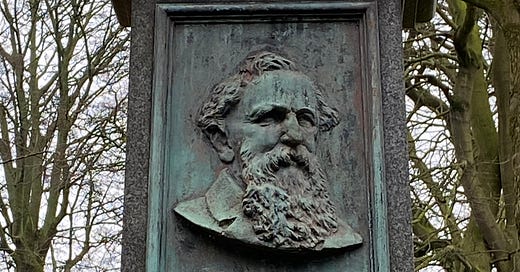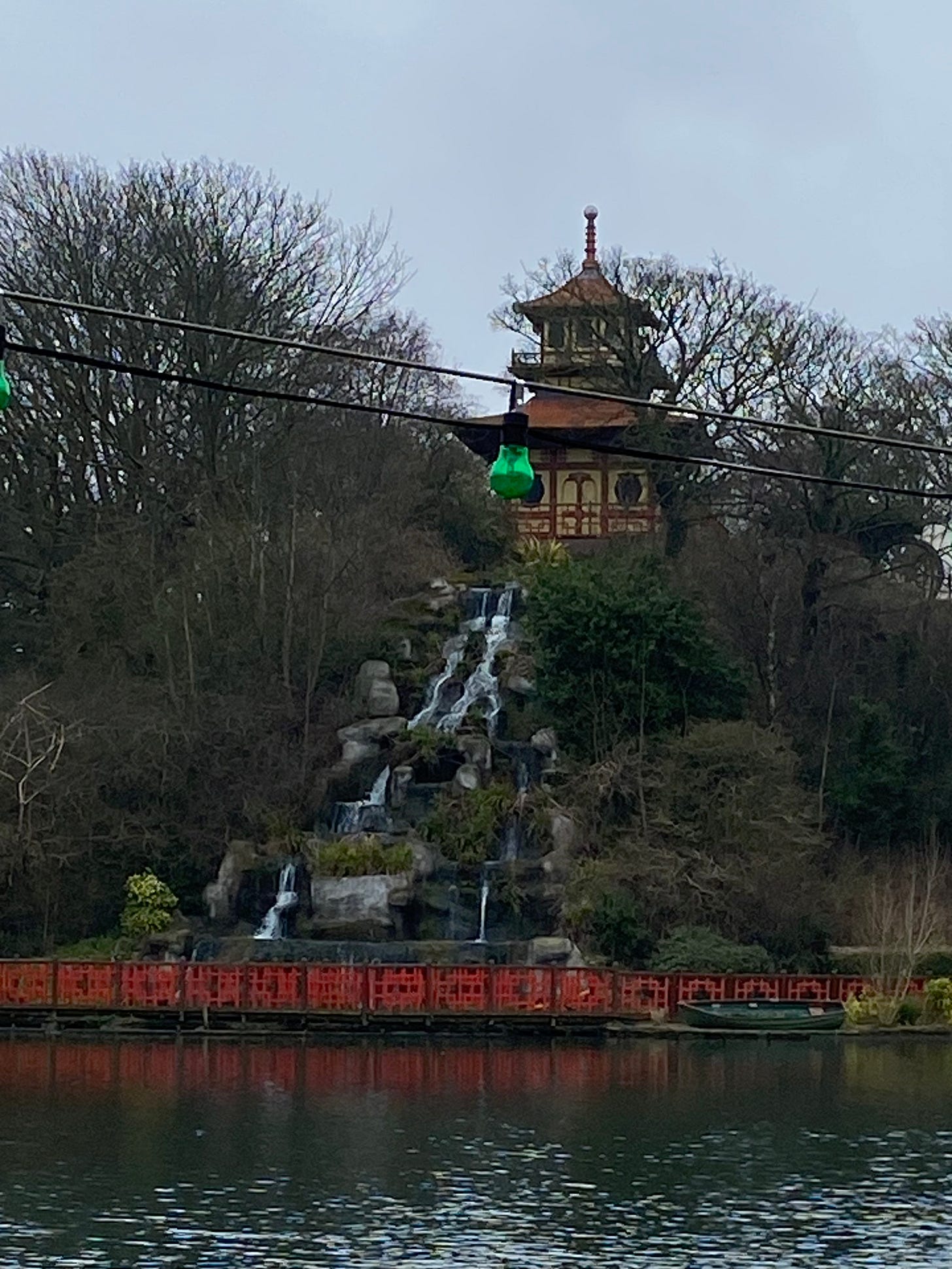The Temperance Advocate
'Tell me not what strong drink has been nor what it is intended to be. I know what it is now, it is Britain's curse, it is the God of this nation'.
This past week I went on a short holiday to North Yorkshire. More specifically to a small place just outside of Whitby. This region is steeped in history, particularly Whitby that has links to Dracula, and Whitby Abbey, a 7th-century Christian monastery that later became a Benedictine abbey, and finally dissolved by Henry VIII during the Dissolution of the Monasteries.
In the process of finding dog friendly walks, I stumbled across Peasholm Park. This park is located in Scarborough and is oriental themed. My love of Japanese culture is all about this. Furthermore, the sign of a good park is when you're in the park and have no concept of the world outside of it. Central Park in New York is the gold standard of this. Peasholm is also great as its in Scarborough quite near the coast, just off a main road yet you forget where you are once inside.
As you head into the park, I went right not left which takes you past the moat that separates the path from the island. Following the path up you pass water gardens, rare trees and if following the the ring around the island it leads to some stands and cafes wherein sits the Japanese pagoda in the middle of the island. Unfortunately the island wasn't open to gain access to the pagoda.
So continuing on the path takes you on the 'Glen Tree Trail'. This really is something to behold. It has rare trees such as Red Oak, Cappadocian Maple, Ash, Black Mulberry, Chusan Palm, Arolla Pine, London Plane, Cucumber Tree, False Acacia, Hairy Birch and more too many to list. As you hit the top of the trail you come to a World War graveyard within the park itself. Beyond that is another graveyard outside of the park perimeter I believe, named Manor Road Cemetery. At the very end of the trail, you turn left up to the cemetery and through a short tunnel and head up a small incline towards the main part of the cemetery itself. On that short incline on the right hand side I was struck by a huge gravestone, the likes of which I had never seen before. I took a picture as it was so striking. As you can see there is a carved portrait that's almost a bust slightly jutting out of the plate itself.
The tomb reads
IN MEMORY OF
THOMAS WHITTAKER J. R.
TEMPERANCE ADVOCATE
1835 - 1899
WHO DIED NOV 20th 1899,
AGED 86 YEARS
Underneath that is a plaque which states
'Tell me not what strong drink has been nor what it is intended to be. I know what it is now, it is Britain's curse, it is the God of this nation'.
I have a weird fascination with gravestones having spent way too much time in cemeteries looking at graves. When I was 10 years old I went on a family holiday to look at World War 1 battlefields and memorials in France and Belgium.
So naturally I had to research this man and what he stood for.
Temperance is old language which describes 'Abstinence from or moderation in drinking alcoholic beverages'.
A little dip into the Temperance Movement. Given that Whittaker was British it makes sense to look at the movement from the United Kingdom. The Temperance Movement gained traction in the West predominantly in English speaking countries such as the US. In the UK alcohol was embedded within society which soared during the Gin Craze. The upper echelons of society were however critical of the lower classes drunken behaviour. The first temperance organisation was the Glasgow and West of Scotland Temperance Society in 1829. The movement was very much spearheaded by Joseph Livesey who opened the first temperance hotel in 1833, followed by a magazine and The British Association for the Promotion of Temperance in 1835.
Interestingly, according the grave it was 1835 when Whittaker took up the cause. So here is what I found on Whittaker himself.
Local preacher, temperance advocate and lecturer, and newspaper proprietor, he was born near Grindleton, Lancashire, United Kingdom on 22 August 1813. The family moved to Clitheroe, then to Blackburn and then to Preston about 1825 on his father being appointed the watchman at Horrock's Mill, where both Thomas and his brother found employment in the weaving department.
Whittaker received some education in a night school run by Joseph Livesey, as mentioned above. He married in Glossop at 19, and returned to Blackburn following a drunken brawl in 1835. Injury, unemployment and the loss of his first child triggered an emotional crisis and conversion to total abstinence later that year.
He began a career as an eloquent and effective temperance lecturer, first in Northern Counties and then from 1837 for the New British and Foreign Temperance Society in London and the south-east. His first wife died in 1837, and in 1838 he married Louisa Palmer (1810-75).
In 1849 he moved to Scarborough, using the town as a base for lecture tours both in the United Kingdom and America. He became active in Liberal politics there, was first elected to the town council in 1867 and was mayor in 1880-81. He was both a correspondent and columnist for the town's papers but his contributions were found to be too inflammatory by the editors.
For a short time in the 1860s he owned his own newspaper The Watchman, then in 1877 acquired The Mercury and in 1882 began the Scarborough Evening News (still in existence). He wrote two autobiographies, Life's Battles in Temperance Armour (1884), which went through at least three editions, and Brighter England and the Way to It (1891).
He died on 20 November 1899. His funeral service was held at Westborough Wesleyan Chapel and he was buried in Scarborough's Dean Road Municipal Cemetery.
Whittaker's family included Sir Meredith Thompson Whittaker (1841-1931), iron-founder, newspaper owner, and chairman of the Press Association 1916-17, and Thomas, who succeeded to his father's temperance convictions.
I'm grateful that there are tools that exist that can bring a person’s life to the page simply from a random walk with an unexpected discovery.
After I left Scarborough I learnt Anne Brontë was buried nearby at St Paul’s Church which was disappointing to have missed. Discovering unusual graves may end up becoming a weird hobby.






